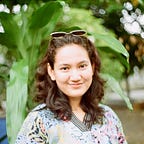Future Education #2
Hi guys! This time, I’d like to make some recap, review, and reflection on my 2nd-week courses in Coursera! This topic is quite intriguing and confusing for me! It’s about intelligence!
What do you think of when you hear about intelligence? Do you believe intelligence is nature? or something nurture? quite confusing right? Even in education literature development, there is no definite answer to what actually, exactly is intelligence. If we have a look at what is intelligence, there will be lots of answers considering their way of thinking. For example, the theory from Howard Gardner (1983) argued that there was such a thing as multiple intelligences which was first laid out in his book called Frames of Mind: The Theory of Multiple Intelligences. Those are linguistic, logical-mathematical, spatial, musical, bodily kinaesthetic, interpersonal, and intrapersonal. I think this argument of intelligence is common to us now. However, Professor Gordon Stobart, the lecturer from London University who gives a lecture at that time, explained that people learn means that people are developing their abilities. So, intelligence is about the measure of learning not the cause of learning. But, this becomes confused when there is a fact that why there is a quick learner and the slower one? Why is there the same brain, the same ability, but the result is different? what makes them different? This question questions the behavioralist assumption that a learner learns is passive and they depend on environmental stimuli (maybe I’ll explain this in another story).
Professor Gordon believes that people born with certain abilities and how these develop really come down very much to many factors, such as the environment, stimulation, and what else. So, how the ability to develop means that how it interacts with the environment. At this point, we could say that the background of the children matters, whether they are privileged? or deprived? These variables that we cannot control make lots of unexplainable facts why someone could be brilliant in some fields, Yoyoma is brilliant in his cello playing for example, among lots of people study cellos hard as well. Maybe, this is unexplainable, or hard fact makes people easily could say that “aah, he was born to be a cellist” “it’s his destiny” and something else that would say, this is nature. Do you believe that guys? If yes, maybe we are different.
This time, I’d like to make a comparison between me and my brother. My brother is a cellist and I think he is a very very brilliant cellist. We are from Indonesia and now he stays in the Netherlands and finished his major on Cellist. I am cellist also, but I don’t choice cello as my major. And yes me and my brother are born on cellist family. Once, maybe people would say that my brother could pass to study in the Netherlands (which is a hard struggle for Indonesian to get there) because he was born to be a cellist. That is his destiny to be a cellist. But, if I reflect it again and make a comparison towards me, I think its a nurture. Why? I recite from Prof. Gordon, he said that “We were born with certain capacities, BUT how this develops really comes down very much to the environment, the stimulation, and what else” also, his emphasize on intelligence is about the measure of learning not the cause of learning, this explanation shows me that I could be a brilliant cellist also if I develop my cello playing and also my environment urge and encourage me to learn to play cello hardly. It means that to be a brilliant cellist, there is a price to pay, not something given. He must go through deliberate practice to become an expert. He has gone through the nurturing process.
So, by this reflection, I believe that intelligence is nurture because there is a process, deliberate practice, for someone to become an expert learner. The next question is, how does somebody become an expert learner? How do students know exactly what is their ability? Prof. Gordon would like to say that the kid must have opportunities to explore what they actually are, giving them a bit more choice about what they do. The problem is school/teachers don’t give kids much opportunity to do that. This part is quite relevant to my prior story that criticizing one fits all curriculum. The status quo curriculum minimizes that chance for a kid to have an opportunity. This point of inline view with the constructivist and humanity view of learning (maybe I will explain in other stories). So, what exactly does a teacher have to do? According to Prof. Gordon (again), the teacher’s role is to tune the kids into what they are doing, why are they doing it and how the teacher can make sense of something. In other words, the teacher should give a big picture of the mental framework of what or how something works, and give the kid the opportunity to explore it by themselves, instead of dictating some ideas.
